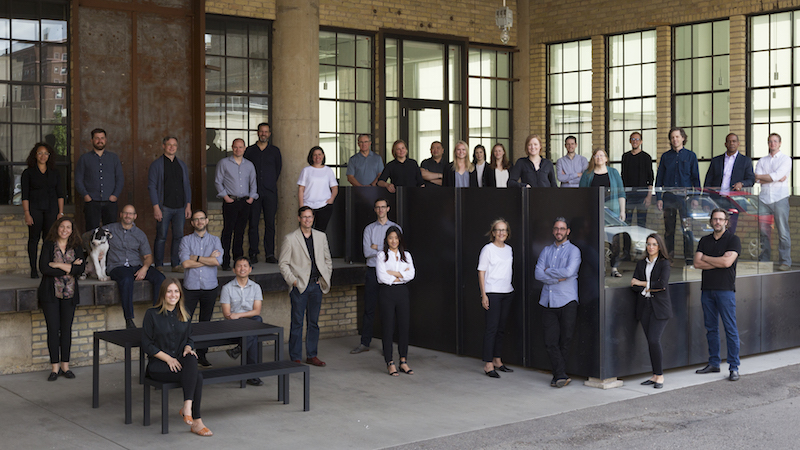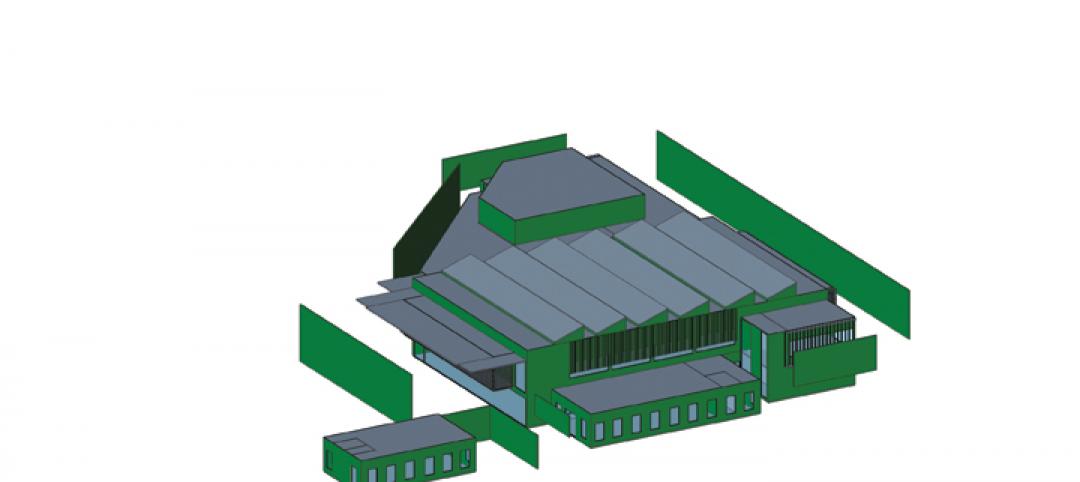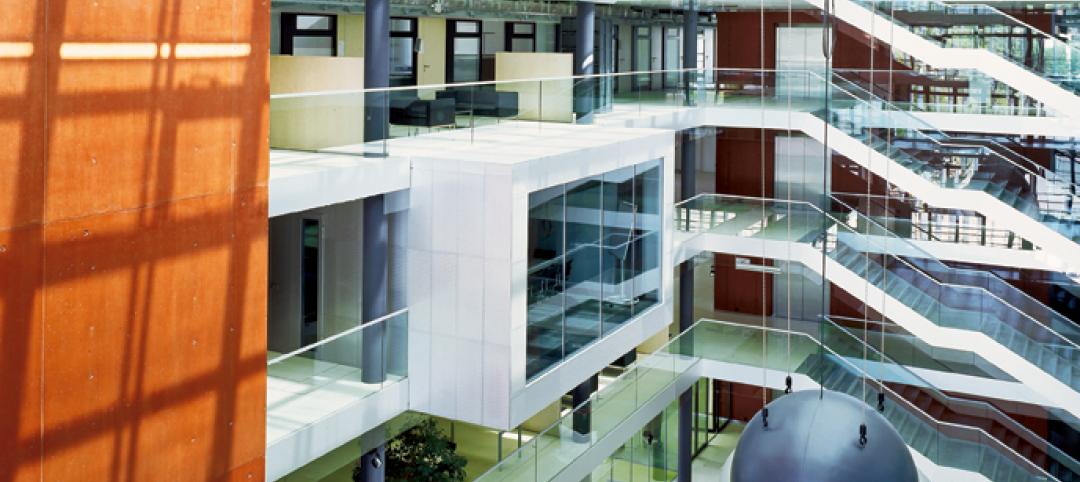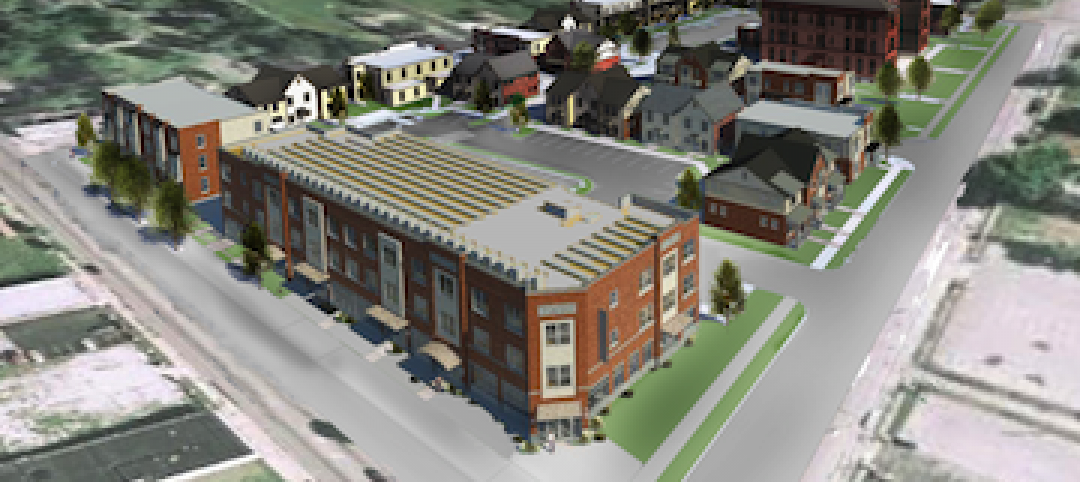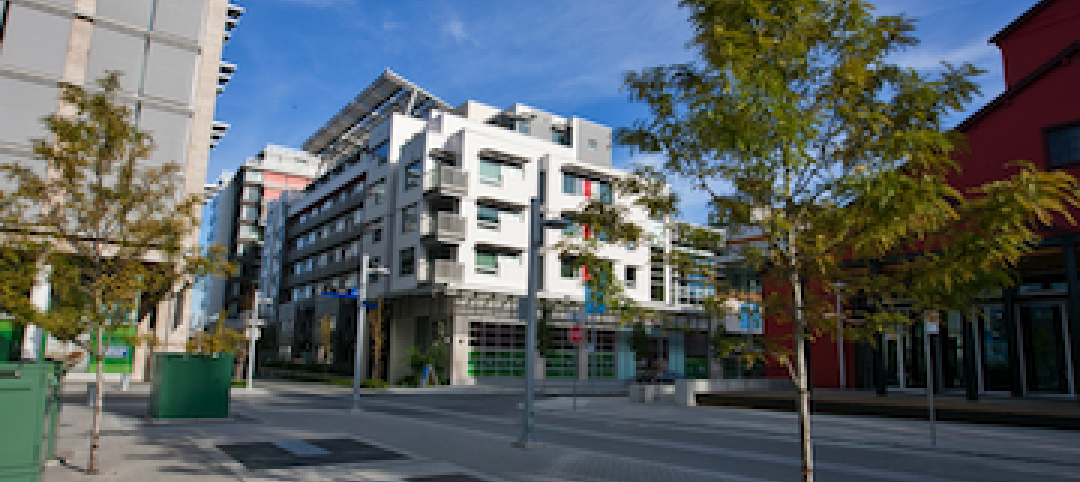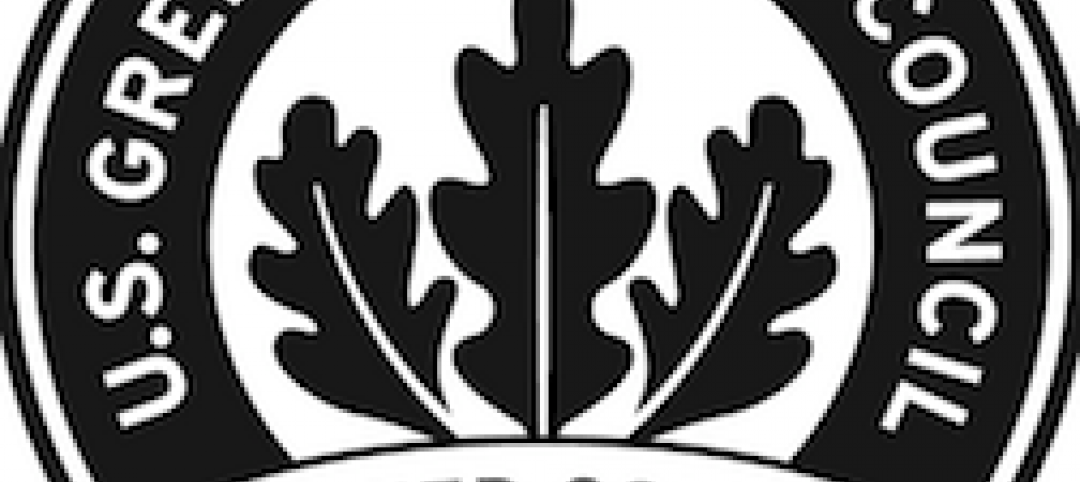The Board of Directors and the Strategic Council of the American Institute of Architects (AIA) voted for Snow Kreilich Architects to receive the 2018 AIA Architecture Firm Award. The AIA Architecture Firm Award, given annually, is the highest honor the AIA bestows on an architecture firm and recognizes a practice that consistently has produced distinguished architecture for at least 10 years. Snow Kreilich Architects will be honored at the AIA Conference on Architecture 2018 in New York City.
Julie Snow, FAIA, founded the firm in Minneapolis in 1995, and later was joined by partner Matt Kreilich, AIA. Snow Kreilich’s practice benefits greatly from the diversity and background of its studio members. Eschewing the demographic norms of many firms, 50 percent of the staff consists of women and minorities, strengthening the culture through holistic collaboration.
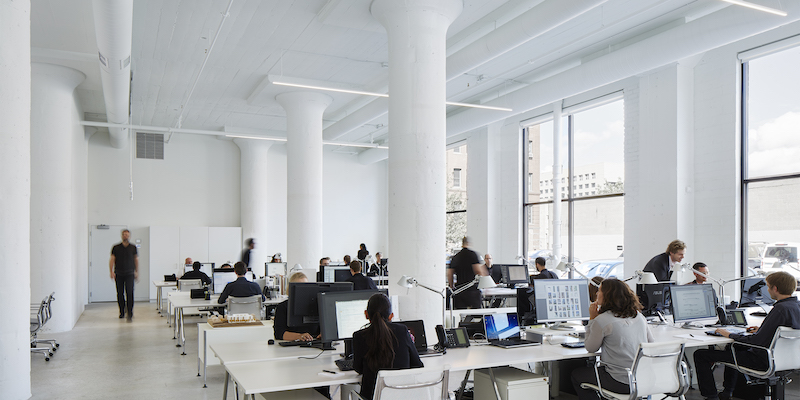
All of Snow Kreilich's work springs from the idea that architecture can transform the human experience. Two of the firm's most famous projects — ports of entry for the U.S. Department of Customs and Border Protection in Maine and Minnesota — embody that idea perfectly. Together, the forms of the buildings — the first welcome to America for tens of thousands per year — are about border security as much as they are about a progressive vision for architecture. Their warm materials and glowing interiors project an embracing welcome to all and quietly, but confidently, state that this is a country of bold design solutions.
“This is an architecture of use and convenience, permanence, and beauty, deeply rooted to its place, and constructed of materials choreographed in an emotive way, with poetic qualities that move us deeply,” Marlon Blackwell, FAIA, wrote in a letter supporting Snow Kreilich Architects’ nomination for the Architecture Firm Award. “Their body of work is distinguished by a restrained formal elegance and a refined minimal tectonic sensibility while avoiding the nostalgic and technological excesses of our discipline. Indeed, they see architecture as a material practice and a cultural act born of a sensual pragmatism.”

The Minneapolis firm is also highly regarded for its other building types, from ballparks to single family homes, that each in its own way accomplishes the same mission of elevating the experience of its users. Much of that is done by exercising restraint, eliminating indulgent flourishes in favor of straightforward forms that speak about material richness and tectonic refinement.
Across the Mississippi River in a Minneapolis warehouse district, the firm's 2014 Brunsfield North Loop Apartment uses metal cladding and angular balconies that jut from the facade to set the building apart from its neighbors as the hippest offering in a hot rental market.
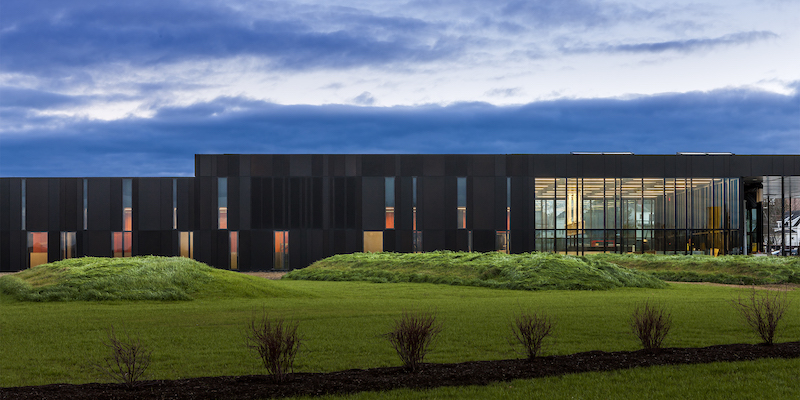
Giving back to the communities of Minnesota and the profession are key initiatives beyond design excellence, and many studio members are involved in local architecture schools. In 2017, the firm provided $120,000 in pro bono services to outlets such as the Kibera Girls Soccer Academy in Kenya and the Leatherback Trust in Costa Rica. By shelving the idea of all-night charrettes and promoting a healthy work/life balance, Snow Kreilich has proven that important and award-winning architecture can be conceived during regular business hours.
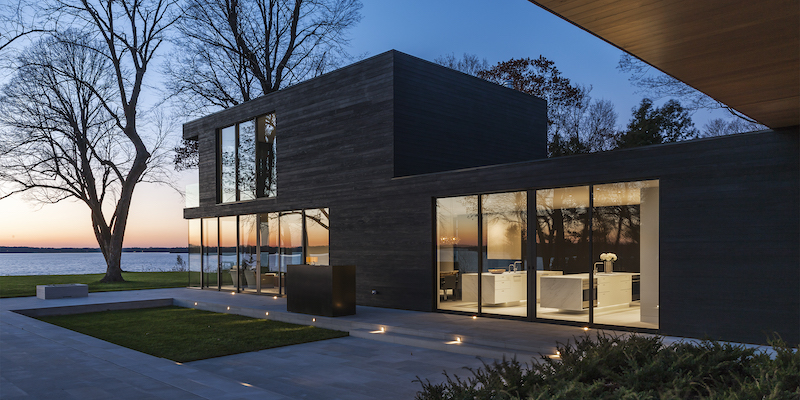
Other notable projects include:
CHS Field
This project in St. Paul, Minn., was named the best New Ballpark of 2015 by Ballpark Digest. The facility is not only a beautiful venue to watch a baseball game or concert, but also has attracted major investments in housing and restaurants in the neighborhood.
B + W HOUSE
The design replicates the neighborhood’s residential pattern while creating an affordable, sustainable home. A concrete wall encloses the perimeter of the private spaces at grade. The wall is a cast-in-place concrete system with a 4-inch high performance insulation core, providing a cost-effective, energy-efficient, and durable enclosure.
KNOCK INC.
The renovation of a neglected 1960’s food distribution center on the edge of downtown Minneapolis into the new workplace for the creative innovators at KNOCK Inc. Daylight penetrates the space with expanded window openings, floor-to-ceiling glazed office walls, and more than 25 solar light tubes enhancing the work environment and reducing energy consumption. Healthy and local building materials such as reclaimed walnut enhance the workday.
Snow Kreilich Architects is the 55th AIA Architecture Firm Award recipient. Previous recipients of the AIA Firm Award include Leddy Maytum Stacy Architects (2017), LMN Architects (2016), Ehrlich Architects (2015), Eskew + Dumez + Ripple (2014), Tod Williams Billie Tsien Architects (2013), VJAA (2012), Lake| Flato (2004), Gensler (2000), Perkins & Will (1999), Bohlin Cywinski Jackson (1994), and Skidmore, Owings & Merrill (1962).
Related Stories
| Nov 2, 2010
Energy Analysis No Longer a Luxury
Back in the halcyon days of 2006, energy analysis of building design and performance was a luxury. Sure, many forward-thinking AEC firms ran their designs through services such as Autodesk’s Green Building Studio and IES’s Virtual Environment, and some facility managers used Honeywell’s Energy Manager and other monitoring software. Today, however, knowing exactly how much energy your building will produce and use is survival of the fittest as energy costs and green design requirements demand precision.
| Nov 2, 2010
Yudelson: ‘If It Doesn’t Perform, It Can’t Be Green’
Jerry Yudelson, prolific author and veteran green building expert, challenges Building Teams to think big when it comes to controlling energy use and reducing carbon emissions in buildings.
| Nov 2, 2010
Historic changes to commercial building energy codes drive energy efficiency, emissions reductions
Revisions to the commercial section of the 2012 International Energy Conservation Code (IECC) represent the largest single-step efficiency increase in the history of the national, model energy. The changes mean that new and renovated buildings constructed in jurisdictions that follow the 2012 IECC will use 30% less energy than those built to current standards.
| Nov 1, 2010
Sustainable, mixed-income housing to revitalize community
The $41 million Arlington Grove mixed-use development in St. Louis is viewed as a major step in revitalizing the community. Developed by McCormack Baron Salazar with KAI Design & Build (architect, MEP, GC), the project will add 112 new and renovated mixed-income rental units (market rate, low-income, and public housing) totaling 162,000 sf, plus 5,000 sf of commercial/retail space.
| Nov 1, 2010
John Pearce: First thing I tell designers: Do your homework!
John Pearce, FAIA, University Architect at Duke University, Durham, N.C., tells BD+C’s Robert Cassidy about the school’s construction plans and sustainability efforts, how to land work at Duke, and why he’s proceeding with caution when it comes to BIM.
| Nov 1, 2010
Vancouver’s former Olympic Village shoots for Gold
The first tenants of the Millennium Water development in Vancouver, B.C., were Olympic athletes competing in the 2010 Winter Games. Now the former Olympic Village, located on a 17-acre brownfield site, is being transformed into a residential neighborhood targeting LEED ND Gold. The buildings are expected to consume 30-70% less energy than comparable structures.
| Oct 27, 2010
Grid-neutral education complex to serve students, community
MVE Institutional designed the Downtown Educational Complex in Oakland, Calif., to serve as an educational facility, community center, and grid-neutral green building. The 123,000-sf complex, now under construction on a 5.5-acre site in the city’s Lake Merritt neighborhood, will be built in two phases, the first expected to be completed in spring 2012 and the second in fall 2014.
| Oct 21, 2010
GSA confirms new LEED Gold requirement
The General Services Administration has increased its sustainability requirements and now mandates LEED Gold for its projects.
| Oct 18, 2010
World’s first zero-carbon city on track in Abu Dhabi
Masdar City, the world’s only zero-carbon city, is on track to be built in Abu Dhabi, with completion expected as early as 2020. Foster + Partners developed the $22 billion city’s master plan, with Adrian Smith + Gordon Gill Architecture, Aedas, and Lava Architects designing buildings for the project’s first phase, which is on track to be ready for occupancy by 2015.


